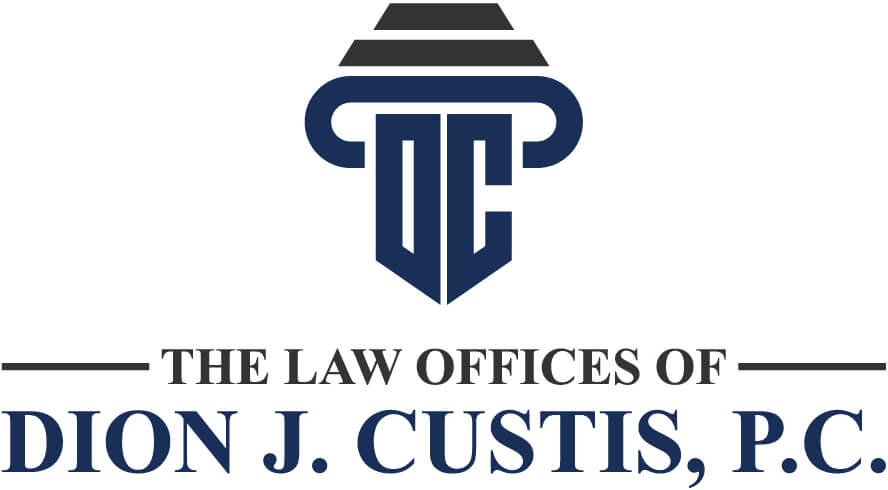Do I Need a Lawyer at My Arraignment (First Court Appearance)?
You’ve been arrested, booked, and now you’ve received a court date for your arraignment — your first appearance before a judge. You’re probably wondering: Do I really need a lawyer for this part? Isn’t it just a formality?
Many people assume they can handle an arraignment on their own, only to realize too late how much that decision cost them. The truth is, your arraignment is more than just a quick court date — it’s the official start of your criminal case. What happens during this hearing can influence the entire course of your defense.
That’s why having a skilled attorney who focuses on criminal defense in Colorado from day one is one of the smartest moves you can make.
What Is an Arraignment in Colorado?
The arraignment is your first formal appearance in court after being charged with a crime. It’s where the court informs you of:
- The official charges being filed against you
- Your legal rights
- The potential penalties you could face
- Your opportunity to enter a plea: guilty, not guilty, or no contest
The judge may also revisit bail or bond conditions and set dates for future court proceedings.
This hearing is not just a “check-in.” It’s the legal foundation for how your case will proceed — and any misstep here can have long-lasting consequences.
What Can Go Wrong Without a Lawyer?
You might think, “I’ll just plead not guilty and get a lawyer later.” But showing up unrepresented at your arraignment is a gamble.
Here’s what could happen if you don’t have legal support:
- You may not fully understand the charges or penalties
- You could say something that hurts your case
- The judge could impose strict bail conditions — or deny bail
- You might miss the chance to challenge improper charges
- You could be pressured into an early plea deal that isn’t in your favor
Hiring a lawyer right away means you walk into court prepared — and start your criminal defense in Colorado on strong footing.
How a Lawyer Helps at Your Arraignment
Even though your attorney may not present a full defense at this stage, they play a critical role in protecting your rights and setting the tone for your case.
An experienced criminal defense attorney will:
- Explain the charges and potential penalties clearly
- Enter your plea on your behalf
- Negotiate bail or request release on your own recognizance
- Make sure your rights haven’t been violated
- Begin evaluating the case immediately and lay groundwork for a strong defense
This legal strategy begins before the hearing even starts. The earlier your lawyer is involved, the more options you’ll have — especially when it comes to negotiating charges, identifying weaknesses in the case, or seeking alternatives to jail time.
What Happens During the Arraignment Itself?
Your arraignment will typically include the following steps:
- Call to court: Your case is called, and you’ll stand before the judge.
- Reading of charges: The judge reads the charges you’re facing.
- Advisement of rights: You’re reminded of your constitutional rights.
- Plea entry: You or your lawyer will enter your plea.
- Bail discussion: The judge may review your bail or bond conditions.
- Next court date: The judge schedules your next appearance.
With proper legal representation, this process is smoother and less intimidating. Your attorney handles the talking, explains your options, and ensures you don’t make mistakes that could cost you later.
Common Misconceptions About Arraignments
“It’s not a big deal — it’s just paperwork.”
Wrong. The arraignment sets legal wheels in motion. It’s a pivotal opportunity to begin influencing how your case unfolds.
“I’ll get a public defender if I need one.”
In Colorado, public defenders are only appointed after an application and eligibility screening. If you show up without a lawyer, you may not receive representation that day — or you could be forced to proceed without counsel. Hiring your own lawyer ensures immediate protection.
“I’ll just plead guilty and move on.”
Pleading guilty at arraignment without fully understanding the consequences is a mistake many regret. A guilty plea could:
- Waive your right to trial
- Lead to jail time, even for minor charges
- Create a permanent criminal record
- Affect your job, housing, or immigration status
A qualified attorney experienced in criminal defense in Colorado will explain what’s at stake — and help you avoid a rushed or uninformed decision.
Real-World Example: The Plea Trap
A woman in Colorado facing a shoplifting charge showed up to her arraignment alone. The prosecutor offered a plea deal on the spot: plead guilty and pay a fine. She accepted.
What she didn’t know was that the plea created a permanent criminal record. Six months later, she was denied a promotion at work and lost her eligibility for a housing program.
Had she brought a lawyer, they could have explored a diversion program or deferred judgment — keeping her record clean. This is the value of having proper criminal defense in Colorado from the start.
Can You Change a Plea Later?
Yes, but it’s difficult. If you plead guilty at your arraignment, you may be allowed to withdraw the plea under certain conditions — but the court does not have to grant your request.
The best approach is to avoid making hasty decisions in the first place. That means hiring an attorney before your arraignment who understands the local courts, prosecutors, and procedures in Colorado.
When Should You Hire an Attorney?
Immediately after your arrest — or as soon as you receive a summons to appear in court.
The sooner your lawyer is involved, the more time they have to:
- Review the evidence
- Spot rights violations
- Explore alternatives to conviction
- Negotiate for reduced charges or favorable outcomes
Your arraignment may feel like a small part of the process, but it’s often where your legal defense begins to take shape.
Why Early Representation Matters
Here’s why you need a proactive, strategic criminal defense in Colorado from day one:
- The state is already building its case against you
- Prosecutors are trained to leverage early momentum
- Judges make first impressions based on what happens in court
- Mistakes at this stage can limit your options later on
Showing up with a prepared attorney signals that you take the charges seriously and that you’re ready to fight back — smartly and strategically.
What to Do Before Your Arraignment
- Do not talk to law enforcement without an attorney present
- Do not post about your case on social media or speak to anyone other than your lawyer
- Do not ignore court documents or miss your scheduled arraignment
- Do contact a qualified criminal defense attorney right away
Preparation is key — and your attorney will help you understand the charges, build a plan, and represent you in court with confidence.
What to Do Next
Facing an arraignment in Colorado? Don’t go it alone.
- Call now for a free consultation with a criminal defense attorney in Colorado
- Get advice, protection, and clarity about your next steps
- Start building your defense from day one — the right way
Meet Dion Custis: A Criminal Defense Lawyer in Colorado Who Knows How to Win
For over 30 years, Dion J. Custis has fought for people just like you — individuals facing criminal charges and unsure of what comes next. Licensed in both Colorado and Wyoming, he’s handled thousands of cases in state and federal courtrooms, including:
- Felony assault charges
- Self-defense claims
- Allegations involving police officers
- Complex, high-stakes trial cases.
You don’t need to know the law. You need a criminal defense lawyer who knows how to use the law to protect you.

What our Client Says about Us
Start Building Your Defense Now — While You Still Have Time
You’ve got one shot to protect your name, your job, your record, and your freedom. Make it count. Don’t Face the System Alone — Schedule a Free Criminal Case Review Today.
